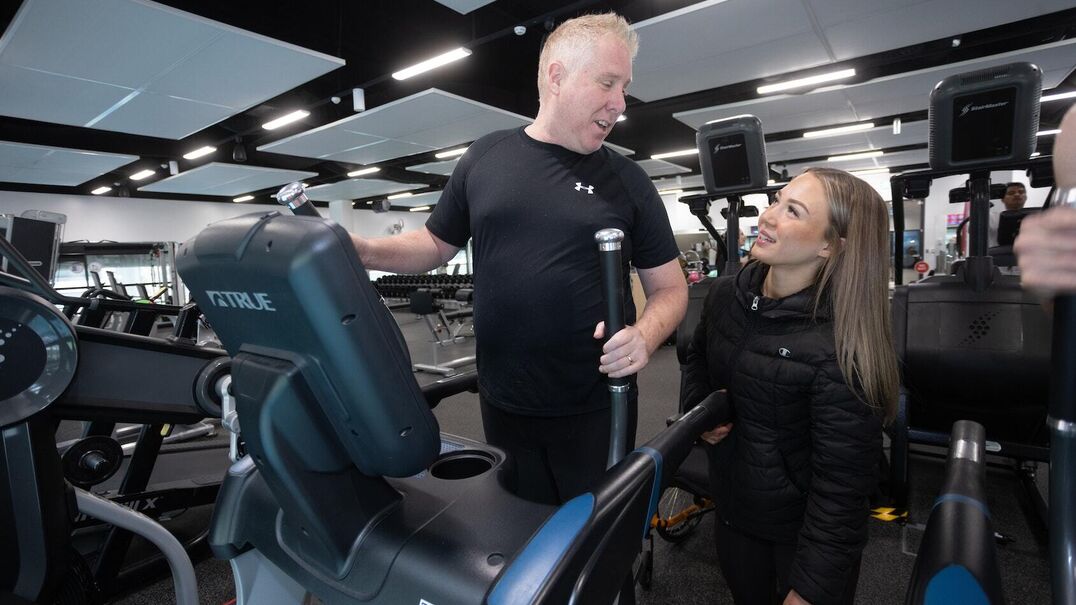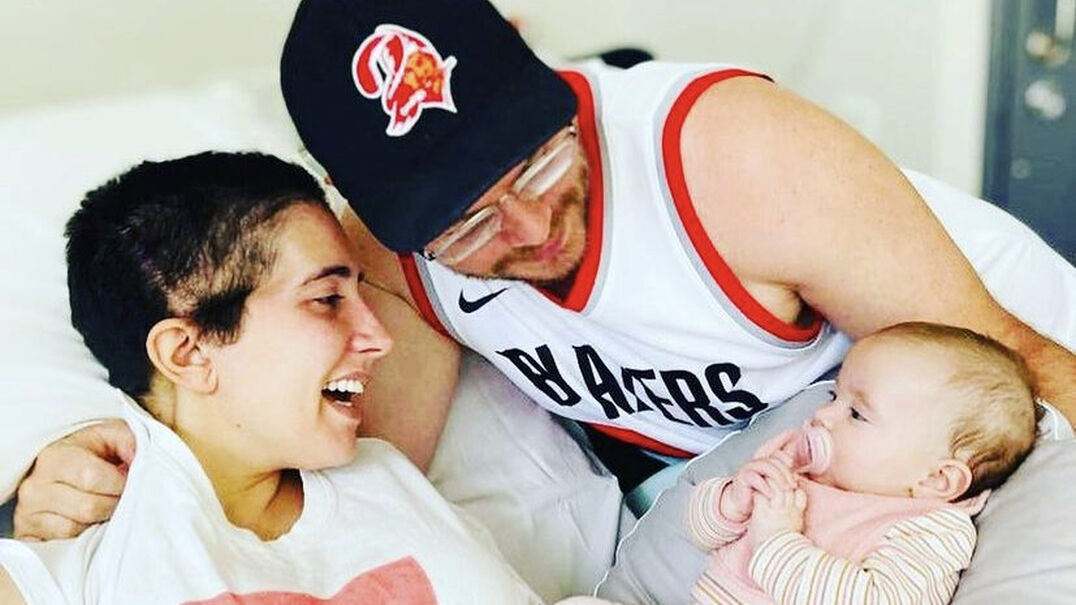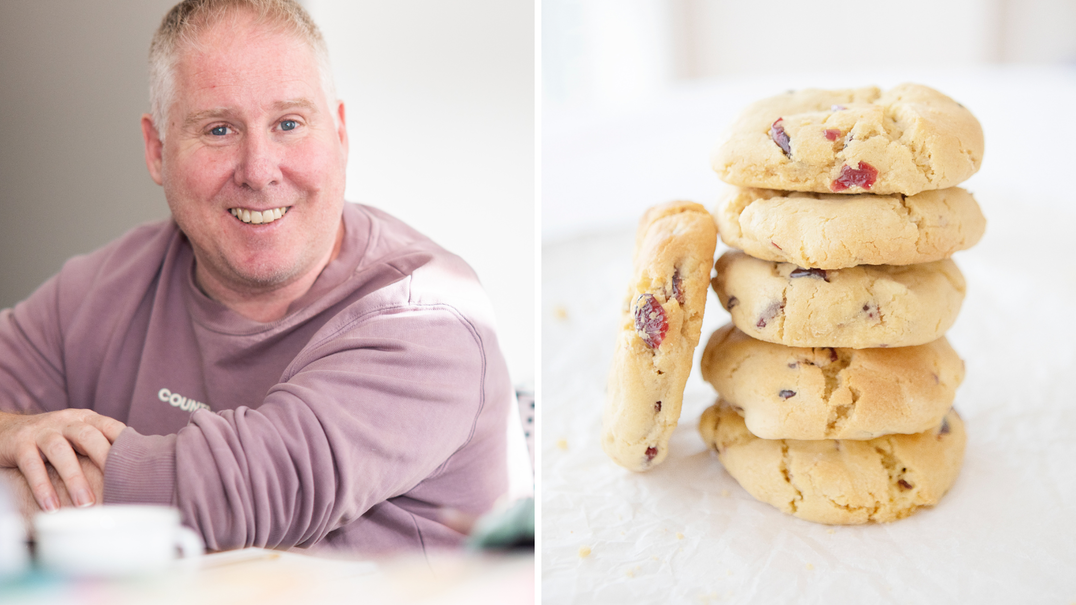News
My Career: Health scare leads to new role
22 September 2023
Caity suffered a stroke when she was just 19. Today she is a support worker assisting other people to live their best lives.

InLife's David Storey writes about what it's like to be a carer for his mum who has Parkinson's Disease. He shares his experience for National Carers Week.
“Where are your papers or your carer’s card to prove you’re a ‘carer’? Without them you can’t get vaccinated” the Service NSW administration staff member said sternly after I’d waited two hours for my first vaccination.
“What are you talking about? I look after my mum. She has Parkinson’s Disease and I am a part-time carer, supporting her and my dad. This is absurd! What card would I have? Would she give me that card?!” Staying calm in the face of such an accusation and demand was difficult.
That’s when it dawned on me - I’m one of the unrecognised, faceless people who deliver a care support service for a loved one. It was also the first time I’d given myself the description of ‘carer’ beyond ticking the box to be able to receive my first vaccination in order to look after my mum and dad, both deemed vulnerable and at risk (and both living in the apartment above me).
Once the anger subsided, the vaccine administered, face mask removed in my car, I felt waves of many emotions come over me.
That’s when it dawned on me - I’m one of the unrecognised, faceless people who deliver a care support service for a loved one.
Was it guilt for ticking a box I thought I was ok to tick, but was told I wasn’t? Shame of being a ‘carer’? Sadness for my mum? Love for my parents? Uncertainty of our future? Pride of being there for them? Or was it just the Pfizer kicking in? It was a strange, blending of all these emotions and more at once.
I’d ‘helped’ my parents and family look after my grandfather for 25 years after a major stroke left him with severe dysphasia and highly reduced motor skills.
I’d ‘helped’ my uncle when he was in the later years of his life and was suffering the long term effects of (what was life saving) radiotherapy for brain cancer 30 years prior.
I’d seen my parents ‘care’ for both my grandfather and my uncle. I’d also seen them ‘care’ for many other friends and family members. And they’d ‘cared’ for me. But me, ‘caring’ for them?
As I sat in my car with these emotions swirling I did what we all can be guilty of doing when big moments that make us rethink everything in our lives come after us - I turned on the car, stuffed the feelings down, drove home, then stuffed them down some more.
Since that day it’s been an ongoing internal battle to make peace with what the word ‘carer’ means to me.
For my mum, every day of her life is a constant rollercoaster, literally changing from one hour to the next. Parkinson’s is truly sh#t, as are all neurodegenerative diseases.
Some days she’s up, dad’s mediocre, and I’m down.
Some days dad’s up, mum’s down, and I’m out getting lunch to give them a break from what can be a mundane chore in preparing a meal.
Or other days we’re all up, enjoying the sunshine on the balcony together… but then we’re back inside as quick as a flash due to the dyskinesia that strikes on an almost 5 times a day basis due to the medication the superwoman I call mum has to take.
Before I go any further, I just want to acknowledge again that: Parkinson’s. Is. Sh#t.
However, and rather ironically, thanks to it I’ve learnt many great things over the last 6 years in the role of ‘carer’ I find myself in at this time in my life. A few of them are below:
Being a carer for a loved one…
is bloody tough, emotionally draining, and filled with constant trials, but it can become a path to connect with that person in a way you’d never imagined.
isn’t about ‘helping’ or ‘saving’ them, it’s about listening to their daily, or hourly, needs and letting go of your expectations of what you want them to be like.
shouldn’t need a ‘card or papers’, but also shouldn’t go unrecognised, nor be unaccounted for as part of our broader health system.
isn’t a reason to not laugh anymore, instead you can joke and laugh in ways that lift you all up.
teaches you compassion, kindness, and love for them, yourself, and for others you’d never expected…
Being a carer for a loved one is something to be proud of.
Thank you mum.
You’re amazing.
News
22 September 2023
Caity suffered a stroke when she was just 19. Today she is a support worker assisting other people to live their best lives.

News
21 July 2023
Brianna Magdalani was four months pregnant when she had a stroke. She’s settling into motherhood with the help of support workers that fit in with the whole family.

News
22 February 2023
Stroke survivor Neil McKenzie is rebuilding his life one cookie at a time. Baking has become a key part of the former pastry chef’s rehabilitation.
